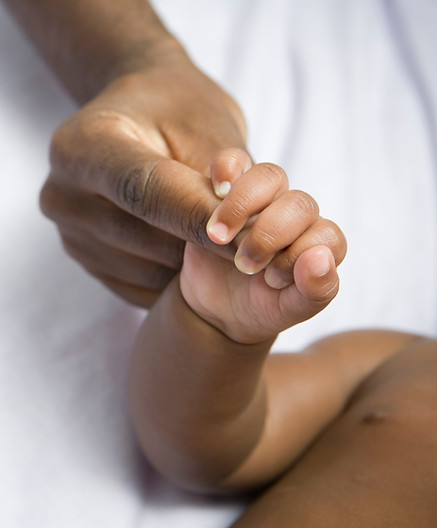ABOUT
Get to Know Me
and My Approach

P E R I N A T A L & P O S T P A R T U M
M E N T A L H E A L T H
Perinatal Mood & Anxiety Disorders
Perinatal Mood and Anxiety Disorders (also called, PMADs) are very common mood and anxiety disorders that can happen at any time from conception through the first year after giving birth. Depression, Anxiety, OCD, and PTSD can affect people at any time during their lives, but there is an increased risk during the perinatal period and symptoms of these disorders may have unique presentations.
PMADs can affect anyone and do not discriminate. Research has found that 1 out of 5 to 7 women are affected by perinatal depression, and 1 out of 10 new fathers suffer from postpartum depression.

SPECIALTIES
Perinatal & Postpartum
Support
Perinatal Mood and Anxiety Disorders
S Y M P T O M S
Perinatal Anxiety
Many moms experience anxiety and distress during the perinatal and postpartum periods. These are some symptoms below that you may be experiencing if you are struggling with perinatal or postpartum anxiety:
-
Excessive worries or fears:
-
Involving the health and safety of the baby
-
-
Difficulty controlling one's worry:
-
Ruminating, persistent thoughts
-
-
Agitated and irritable (Mama Rage is Real!)
-
Restlessness, inability to sit still, feeling on edge
-
Poor concentration
-
Easily fatigued and having sleep disturbance:
-
Difficulty falling or staying asleep
-
-
Increased muscle tension, heart palpitations, racing heartbeat, shortness of breath, or GI distress
References:
Postpartum Support International


S Y M P T O M S
Perinatal Obssesive-Compulsive Disorder
Perinatal OCD is very common in pregnant and postpartum women even though it is not often discussed due to the guilt and shame many moms have about their intrusive thoughts. If you are experiencing some of the symptoms below, know now that thoughts do not equal action and you deserve to have the help you need to feel well again:
-
Intrusive and repetitive thoughts:
-
Usually of harm coming to the baby and you are distressed by these thoughts (Abramowitz et al., 2010)
-
-
Feelings of guilt and shame about thoughts
-
Frightened by your thoughts
-
"What if" thinking
-
Checking the baby in times when the baby is safe
-
Feelings and behaviors of hypervigilance
-
You are engaging in behaviors to avoid harm or minimize triggers from thoughts
References:
Postpartum Support International
Abramowitz J. et al. Obsessional thoughts and compulsive behaviors in a sample of women with postpartum mood symptoms. Arch Women's Mental Health 2010; 13(6): 523-530
S Y M P T O M S
Postpartum Depression
Is this "Baby Blues" or is this Postpartum Depression? Moms from all over experience asking themselves this question about how "Baby Blues" differs from Postpartum Depression. Here are some symptoms of "Baby Blues" and know that these symptoms last only between 2 days and 2 weeks after birth:
-
Tearfulness, lability, reactivity, exhaustion
-
You are predominantly happy and your self-esteem remains unchanged
Postpartum Depression symptoms present as:
-
Overwhelmed, "I feel like I can't cope" (Beck & Indman, 2005)
-
Lack of feeling connected to your baby
-
Inability to take care of yourself or others
-
Feeling isolated or withdrawn
-
Agitated and Irritable (Mama Rage is Real!)
-
Not feeling like yourself
-
Thoughts of suicide or harm
-
Increased headaches, back pain, GI distress, etc.
References:
Postpartum Support International
Beck C.T. & Indman, P. The many faces of postpartum depression. Journal of Obstetric Gynecologic & Neonatal Nursing 2005, 24(5): 569-76


S Y M P T O M S
Perinatal Post Traumatic Stress Disorder
Perinatal PTSD can happen due to a traumatic event occurring during the labor and birth process or the woman being stripped of her dignity or say in her birth. Partners of women who have experienced a traumatic perinatal event may also develop perinatal PTSD through their partners' trauma.
Perinatal PTSD symptoms present as:
-
Avoidance of postpartum care
-
Impaired parental-infant bonding
-
PTSD in the partner who witnessed the birth
-
Low intimate connection with the partner
-
Difficulties with breastfeeding
-
Flashbacks, nightmares, distressing memories of the traumatic event
-
Withdrawn from social support
-
Sleep disturbances
-
Maternal near miss survivor
References:
Postpartum Support International

